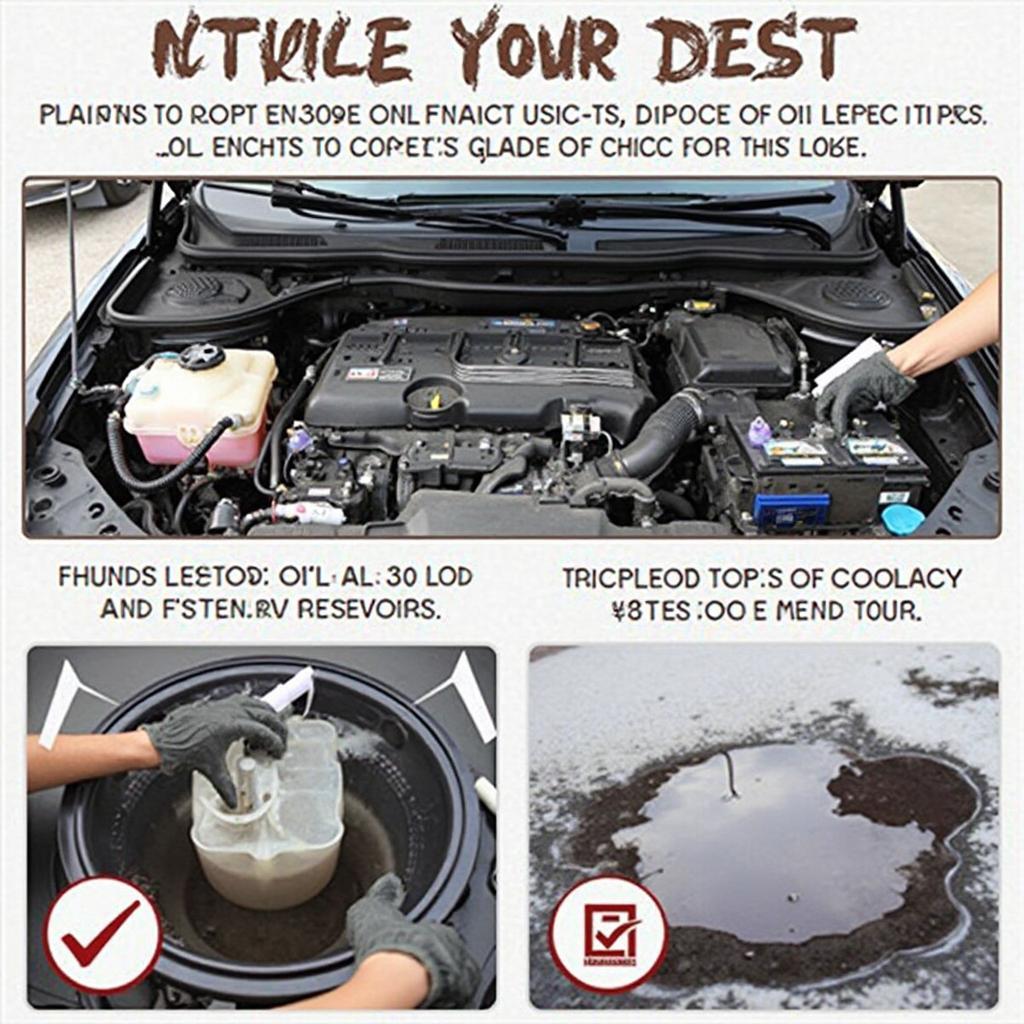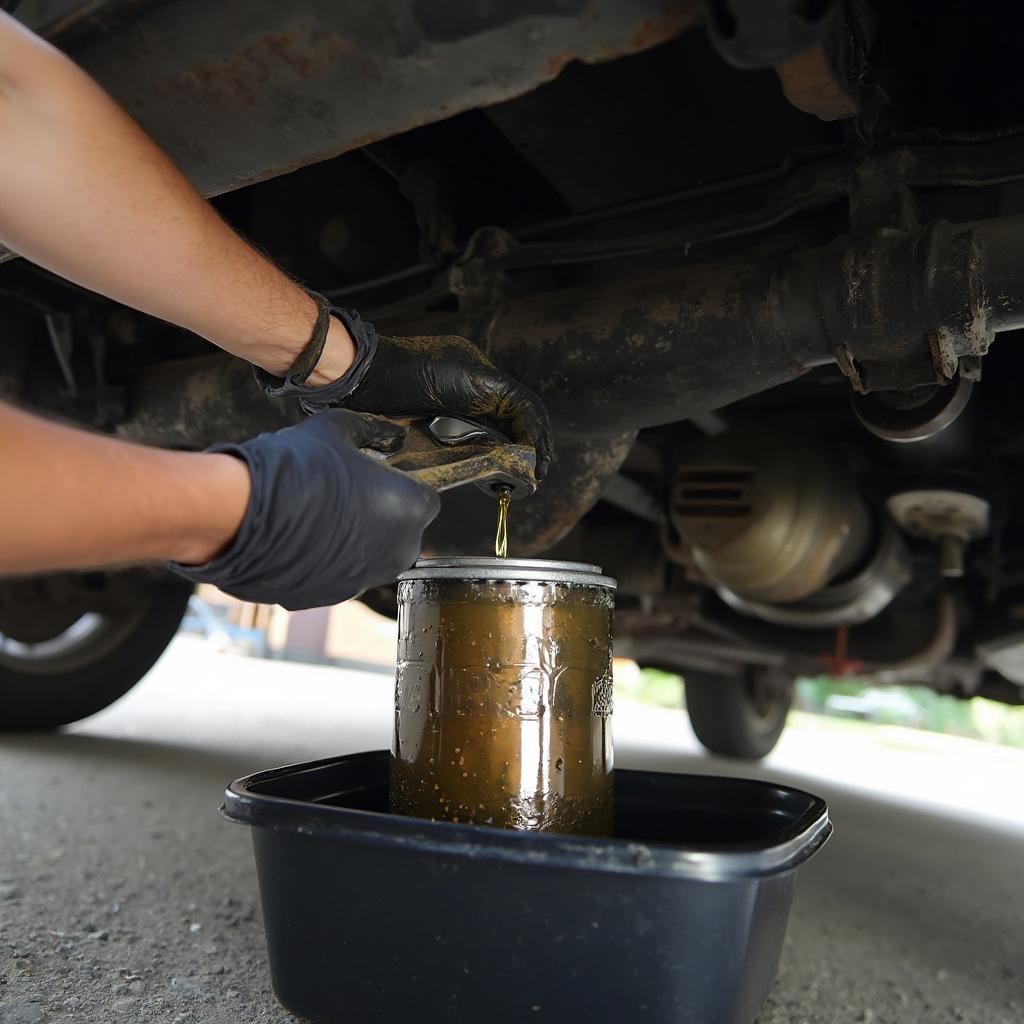Your cart is currently empty!

DIY Car Mechanic Tips: Save Money and Learn Valuable Skills
Diy Car Mechanic Tips are becoming increasingly popular as people look for ways to save money and gain a better understanding of their vehicles. Whether you’re a seasoned DIYer or just starting out, this guide offers valuable insights and practical advice to help you tackle common car repairs and maintenance tasks with confidence. Learn how to diagnose problems, perform basic repairs, and keep your car running smoothly, all from the comfort of your own garage. After reading this guide, you’ll be better equipped to handle your next car project.
Essential DIY Car Mechanic Tips for Beginners
Starting your DIY car mechanic journey can be daunting, but with the right approach, you can quickly gain the skills and confidence needed to handle basic repairs. One of the most crucial initial steps is understanding your car’s systems. A good starting point is the owner’s manual, which provides detailed information about your specific model. Familiarize yourself with the location of key components like the battery, fuse box, and air filter. Having these basics down will make tackling simple tasks, such as changing a flat tire or replacing wiper blades, much easier. Investing in a basic set of tools, including a socket set, screwdrivers, and pliers, is also essential. Remember, safety is paramount. Always disconnect the battery before working on any electrical components, and ensure the car is securely parked on a level surface.
Next, research and learn. The internet is a treasure trove of information, with numerous forums, videos, and websites dedicated to DIY car repair. Car mechanic tips & tricks are readily available, offering step-by-step instructions for various repairs. You can also find valuable car diy tips for specific makes and models, making it easier to tailor your learning to your own vehicle. Remember to prioritize car repair safety tips, as working on a car can involve potentially hazardous situations.
Lastly, start small. Don’t attempt complex repairs right away. Begin with simple tasks like checking fluids, changing light bulbs, or replacing air filters. As you gain experience and confidence, you can gradually move on to more challenging projects.
 Checking Car Fluids – Oil, Coolant, and Brake Fluid
Checking Car Fluids – Oil, Coolant, and Brake Fluid
Diagnosing Common Car Problems
Before starting any repair, accurate diagnosis is crucial. Modern cars are equipped with onboard diagnostic systems (OBD-II) that can provide valuable information about potential issues. Investing in a code reader can help you interpret these codes and pinpoint the source of the problem. However, even without a code reader, you can often diagnose common problems by paying attention to your car’s behavior. Unusual noises, vibrations, or warning lights can all indicate underlying issues. For instance, a squealing noise when braking could suggest worn brake pads, while a knocking sound from the engine might indicate a problem with the bearings. Understanding these symptoms can help you narrow down the potential causes and determine the appropriate course of action.
Performing Basic Car Repairs at Home
Once you’ve diagnosed the problem, you can start tackling the repair itself. Many common car issues can be addressed at home with basic tools and a bit of know-how. Changing oil and filters, replacing spark plugs, and even fixing minor leaks are all within the realm of possibility for the DIY mechanic. However, it’s important to choose repairs that match your skill level and available resources. Screamapillar care tips might be relevant if you own a Tesla, but traditional maintenance tasks like oil changes still apply to most gasoline-powered cars. For more complicated repairs, such as tips for installing car evaporator core, it’s generally best to consult a professional.
 Changing Car Oil and Filter in a Home Garage
Changing Car Oil and Filter in a Home Garage
Maintaining Your Car for Optimal Performance
Regular maintenance is crucial for keeping your car running smoothly and preventing costly repairs down the road. Following the manufacturer’s recommended maintenance schedule is a good starting point. This schedule outlines the recommended intervals for various tasks, such as oil changes, tire rotations, and brake inspections. Beyond the scheduled maintenance, there are several other DIY car mechanic tips that can help you maintain your car’s optimal performance. Regularly checking your car’s fluids, inspecting belts and hoses, and keeping your tires properly inflated can help prevent potential problems and extend the life of your vehicle. Learn more about car repair safety tips to ensure you’re performing these tasks safely and effectively.
Conclusion
DIY car mechanic tips can empower car owners to take control of their vehicle’s maintenance and repairs. By starting small, investing in the right tools, and prioritizing safety, you can save money and gain valuable skills. Remember to utilize available resources, such as online forums and videos, and always choose repairs that align with your skill level.
FAQs
- What are the most essential tools for a beginner DIY car mechanic?
- How can I find reliable DIY car repair information online?
- Is it safe to perform all car repairs at home?
- What are the benefits of regular car maintenance?
- How can I diagnose car problems without a code reader?
- Where can I find car diy tips specific to my car model?
- What are some common car repair safety tips?
Need further assistance? Contact us via WhatsApp: +1(641)206-8880 or Email: [email protected]. Our customer support team is available 24/7.

Leave a Reply